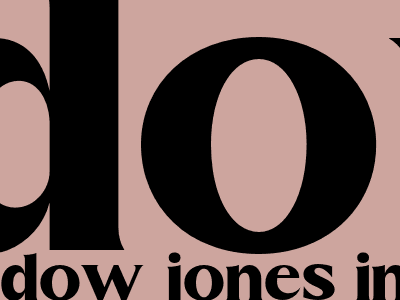
Dow Jones Industrial Average Index TradingView
What is the Dow Jones Industrial Average Index?
The Dow Jones Industrial Average (DJIA), also known as the Dow Jones, is a stock market index that measures the stock performance of 30 large, publicly traded companies listed on stock exchanges in the United States. It is one of the most widely followed equity indices, along with the S&P 500 and the Nasdaq Composite.
The index was created by Charles Dow in 1896 and is calculated by summing the share prices of the 30 companies and dividing by a factor that adjusts for stock splits and dividends. The DJIA is a price-weighted index, meaning that the share price of each company has a proportionate effect on the index's value.
How to Trade the Dow Jones Industrial Average Index
There are a number of ways to trade the Dow Jones Industrial Average Index. One option is to buy or sell futures contracts on the index. Futures are derivative contracts that allow investors to speculate on the future price of an underlying asset, such as the DJIA.
Another option is to trade exchange-traded funds (ETFs) that track the Dow Jones Industrial Average Index. ETFs are baskets of securities that trade on stock exchanges like stocks. They provide investors with a diversified way to invest in the index.
A third option is to trade options on the Dow Jones Industrial Average Index. Options are derivative contracts that give investors the right to buy or sell an underlying asset at a specified price on or before a specified date.
Factors that Affect the Dow Jones Industrial Average Index
The Dow Jones Industrial Average Index is affected by a number of factors, including:
- Economic conditions: The performance of the US economy can have a significant impact on the Dow Jones Industrial Average Index. A strong economy can lead to higher corporate profits and increased investor confidence, which can drive up stock prices.
- Interest rates: Interest rates can also affect the Dow Jones Industrial Average Index. Higher interest rates can make it more expensive for companies to borrow money, which can lead to lower corporate profits and decreased investor confidence.
- Political events: Political events, such as elections and changes in government policy, can also impact the Dow Jones Industrial Average Index. Uncertainty about the future can lead to increased volatility in the stock market, which can drive down stock prices.
- Global events: Global events, such as wars and natural disasters, can also affect the Dow Jones Industrial Average Index. These events can disrupt supply chains, damage infrastructure, and reduce consumer confidence, all of which can lead to lower corporate profits and decreased investor confidence.
Conclusion
The Dow Jones Industrial Average Index is a widely followed stock market index that measures the stock performance of 30 large, publicly traded companies listed on stock exchanges in the United States. It is one of the most widely followed equity indices, along with the S&P 500 and the Nasdaq Composite. There are a number of ways to trade the Dow Jones Industrial Average Index, including futures contracts, ETFs, and options.